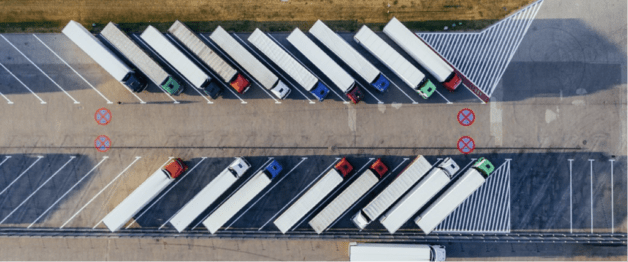
FRANCE: Reverse charge of VAT on imports 2022
VAT registration in France becomes mandatory
The French Finance Act 2020 provides for the amendment of Articles 1695 and 287bc of the General Tax Code (CGI). These articles determine the terms and conditions for the reverse charge of VAT on imports (ATVAI). Currently subject to express application before Customs, on January 1st 2022, the reverse charge of import VAT will be generalised and therefore mandatory. What does this change and for whom?
What are the benefits of reverse charge of import VAT?
You may be wondering why a trader would want to benefit from the reverse charge of VAT on imports. We explain why.
Reverse charge benefits your cash flow
When a company imports goods into France, it files an import customs declaration. On this declaration are settled customs duties, excise duties where applicable and import VAT. If you have set up a goods removal credit (either in your name or using that of your customs representative), you have a maximum of 55 days to pay this import VAT. In the contrary, the import VAT is due in cash, and that at the time of your importation.
Subsequently, you are either to deduct this import VAT in your VAT return or submit a VAT claim to the French Tax Authorities.
To be noted that it takes between 1 and 6 months to be refunded the VAT.
By opting for reverse charge of import VAT, you will no longer be required to pay import VAT in advance and then wait for it to be deducted or reimbursed. You will simply have to report the amount of VAT as collected and as deductible VAT on the same VAT return.
If your company has full rights to deduct VAT, the financial impact is therefore zero.
ATTENTION:
Once obtained, the authorization to reverse charge your import VAT must be well monitored. As a matter of fact, you must ensure that ALL the VAT amounts relating to the import declarations of a given month are all correctly entered on your French VAT return. If you omit to declare an amount or lack of follow-up especially in cases where one has several customs agents, a penalty of 5% of the amount of deductible VAT on reverse charge may be applied.
Generalisation of the ATVAI in France in 2022

We could explain the differences in the criteria for granting ATVAI authorisation depending on whether the operator was established within or outside the EU¹, but these will no longer apply from January 2022. So let’s look ahead to 2022.
Indeed, due to the transfer of the competences for the collection of import VAT from the DGDDI (Direction Générale des Douanes et Droits Indirects) to the DGFIP (Direction Générale des Finances Publiques), the reverse charge of import VAT will be generalised to all companies.
👉 Forget the conditions of granting the authorizations, the deadlines for obtaining them, very short, we can underline the constant efficiency of the customs services in processing these requests for ATVAI, the constitution of the supporting documents.
👉 Also forget, the fact of having to run after each customs forwarder to obtain the amount of the taxable base of VAT (customs value) for a given month as well as the amount of due VAT.
From the 1st of January 2022, the import VAT must be reported on your monthly return (CA3), both as collected VAT and as deductible VAT (regardless of a deduction coefficient).
In addition, your VAT amounts will be pre-filled on the CA3, the French VAT return. This is because the DELTA customs declaration service will communicate this data directly to the DGFiP.
It will be up to your agent / VAT representative such as FISCALEAD, or even a chartered accountant, to check these amounts with the utmost care. Indeed, the fine of 5% of the amount of the non-autoliquidated VAT remains applicable.
In practice, particularly since BREXIT, the E-commerce VAT reform and now the generalization of ATVAI, make sure that your VAT service provider perfectly knows customs rules and procedures.
1) be registered for VAT in France and:
EU: have carried out at least 4 import operations in the EU in the last 12 months and meet 3 of the AEO criteria
Non-EU: clearing customs using the services of a customs representative who holds the AEO authorisation.
It is not uncommon to find companies with several forwarders/customs declarants, depending on the import/export region, or the mode of air or sea transport. Each one had to communicate in a timely and comprehensive manner the VAT amounts of the month, before 2022.
Fiscalead trains and helps you obtain your VAT number in France. Our team is at your disposal.